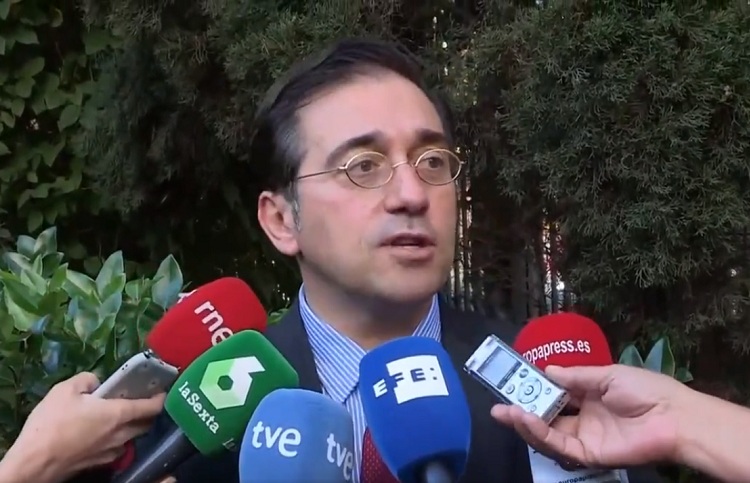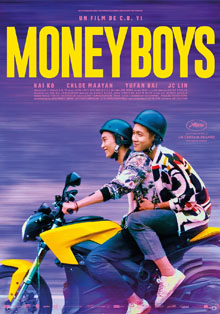Eduardo González
The Minister of Foreign Affairs, José Manuel Albares, yesterday described as a “mockery” the elections of this past Sunday in Nicaragua, in which President Daniel Ortega has won his re-election for a fifth term with 75% of the votes, according to official data rejected by the opposition.
“There have been no free, fair or competitive elections, and the opponents who wanted to compete are in jail right now,” Albares told the press upon his arrival at the Casa de America headquarters in Madrid to attend the commemoration of the 70th anniversary of the Convention Relating to the Status of Refugees. For this reason, he continued, what happened in Nicaragua “cannot be called elections, they have been a mockery, a mockery of the people of Nicaragua, of the EU, of the international community and, above all, of democracy”. The elections, he recalled, did not have “any type of verification” and, therefore, “have no guarantee for the Government of Spain, nor do they have any guarantee for the international community and the European Union”.
For its part, the Ministry of Foreign Affairs rejected yesterday in a communiqué the Nicaraguan elections “due to the unacceptable and arbitrary conditions in which they were held” and demanded “free, fair, transparent and well attended elections that guarantee the participation of all Nicaraguans”. “Like the rest of the countries of the European Union and a good part of the international community”, the Spanish Executive notes that the elections “have lacked the minimum democratic guarantees required” and therefore, it cannot give “credibility and legitimacy to the results that may derive from this process”.
The Government also denounced the “repressive and authoritarian regime” protected by “a regressive legislative framework and the connivance of the Legislative and Judicial powers, controlled by Ortega”, which “has translated into a systematic persecution of political, social, media and economic actors, to the point of outlawing opposition parties, imprisoning their main leaders and pre-candidates, all of them still in prison and deprived of their procedural rights, and consequently denying their right to legal proceedings, media and economic actors, to the point of outlawing opposition parties, imprisoning their main leaders and pre-candidates, all of them still in prison and deprived of their procedural rights, and the consequent denial of their right to participate in clearly fraudulent elections”.
Likewise, the Government of Pedro Sánchez demands “that the Nicaraguan authorities immediately and unconditionally release all political prisoners and demonstrators arbitrarily imprisoned and that their judicial processes be annulled; that they restore and guarantee the fundamental rights of all citizens; and that they put an end to the repression and harassment”.
In turn, the Spanish Executive demands that the State of Nicaragua “comply with its international commitments on Human Rights and with its own constitutional precepts, as well as to allow the return to the country of international mechanisms in this area”, and “condemns the closure of critical media and the expulsion of Nicaraguan journalists, as well as the denial of entry to the country to international correspondents, as happened a few days ago with a team of Radiotelevisión Española (RTVE) on the border with Costa Rica”.
EU and Spain
For their part, the chairman of the Foreign Affairs Committee of the European Parliament, David McAllister (EPP, Germany), and the chairwoman of the delegation for relations with the countries of Central America, Tilly Metz, (Greens/EFA, Luxembourg), yesterday called the elections organized by Daniel Ortega’s regime a “farce”, which “represent the sad culmination of the country’s unstoppable drift towards the authoritarian abyss”. For this reason, they warned, the European Parliament cannot recognize neither the result of the elections nor the institutional authorities that emerge from the rigged vote”.
In this regard, Albares assured yesterday during his meeting with the press that the issue of Nicaragua will be raised again “within the EU”. Last October 17, the EU Foreign Affairs Council asked the High Representative for Foreign Policy, Josep Borrell, to start preparing a possible “third round” of sanctions against the Nicaraguan regime, including the “entourage of President Daniel Ortega”, in view of the possibility of “electoral fraud” in the general elections. On that occasion, as Albares declared at the time from Luxembourg, Spain led, “once again, the position in the EU” and contributed to create “a consensus” in this matter.
Two days before the Luxembourg meeting, the EU Council had extended for one year, until October 15, 2022, the selective restrictive measures imposed in Nicaragua. The sanctions regime was first introduced in October 2019 against individuals and entities responsible for human rights violations or abuses and for undermining democracy and the rule of law. Sanctions currently apply to 14 individuals, including Vice President and First Lady Rosario Murillo.
The Spanish government has repeatedly denounced the situation in the Central American country, which has resulted in a clear deterioration of diplomatic relations between Madrid and Managua. Last August, the Executive of Sánchez expressed, in a communiqué, its conviction that the electoral process in Nicaragua would not offer a result with guarantees and credibility and urged the regime of Daniel Ortega to stop the repression against the opposition and the media. A few days later, Albares recalled the Spanish ambassador in Managua, María del Mar Fernández-Palacios, for consultations following a note issued by the Nicaraguan government accusing Spain of “meddling, interference and intervention” in Nicaragua’s internal affairs.






